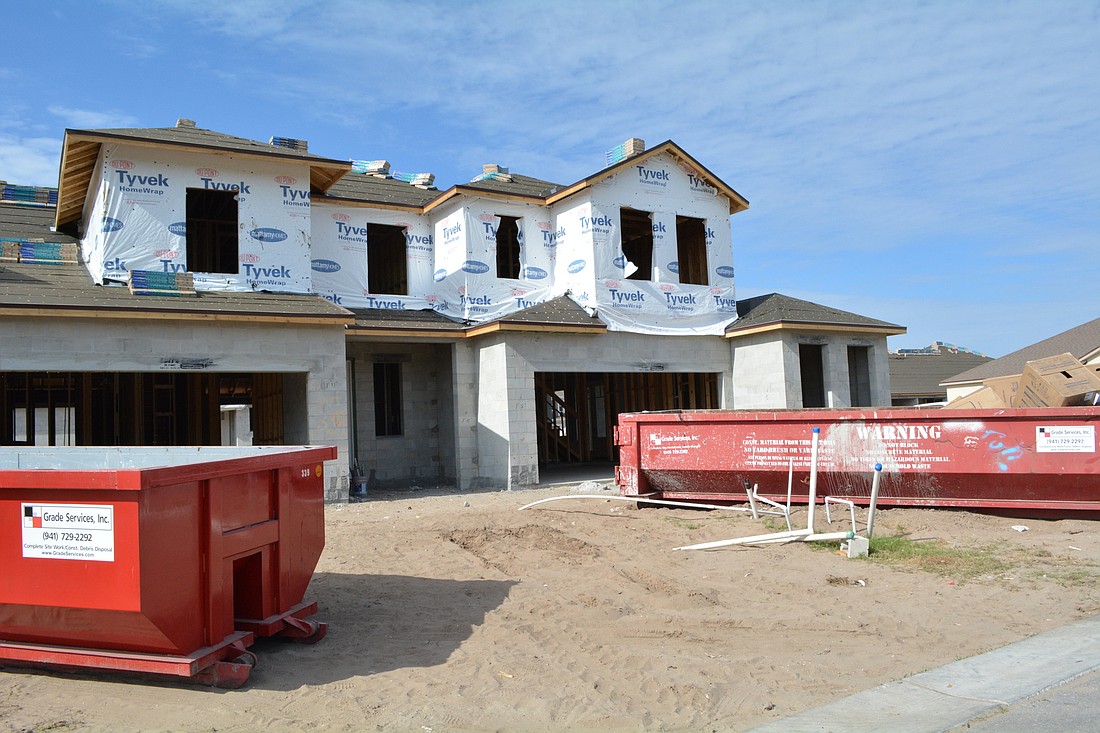- May 1, 2025
-
-
Loading

Loading

Manatee County will consider raising impact fees that could match the full extent recommended by the county’s 2020 study which has yet to be implemented.
The county, which currently is at 90% recommended by a 2015 study, is seeking feedback and questions from the public while commissioners evaluate a possible rise.
Impact fees are one-time fees charged to developers after the completion of construction projects to help cover the cost of increased stress placed on county infrastructure. New development often creates a need to build new roads, parks or emergency services.
Manatee County is required to conduct an impact fee study at least once every five years to ensure relevant data is used to help determine if any rate changes are necessary. The county partnered with Tampa-based engineering consulting company Tindale Oliver to complete the 2020 study.
Based on Tindale Oliver’s study, residential impact fees in Manatee County’s Southeast Benefit District could rise as high as 36 to 39 percent over the previous rate, depending on the size of the house. The southeast district generally extends as far north as the Manatee River and as far west as U.S. Route 301 and includes Lakewood Ranch.
For example, Tindale Oliver's study recommended an impact fee on houses of 1,301 to 1,700 square feet in the southeast district to be $16,544, a 37% increase from the current rate of $12,078 (90% of the 2015 study). For houses, 2,201 square feet or more, the rate would be $21,543, which is 39% more than the current rate of $15,460 (also 90% of the 2015 study).
Impact fees aren’t just for houses, however. They are charged for non-residential uses such as day care centers to hospitals to auto care businesses. Tindale Oliver’s study included an increase as low as 11%, from $924 to $1,028, for every 1,000 square feet of a mini-warehouse built in the southeast district. It also included an increase as high as 603%, from $3,473 to $24,423, for every 1,000 square feet of a private university or junior college built in the southeast district.
Commissioner Vanessa Baugh said it's a fine line trying to figure out proper impact fees. She noted Manatee County already has the second highest rate for impact fees among Florida counties.
"We need to keep our homes not so outrageously expensive," she said. "Then when you talk about lower priced homes for our workforce, you have to keep that in mind. Costs are always given to the buyer. Whoever’s building is going to get their money back.”
The county commissioners will decide whether to raise impact fees to the level calculated by Tindale Oliver in the study, raise them to a smaller level or keep them the same.
County staff and representatives from Tindale Oliver originally presented the study to the commissioners Jan. 19. As of now, Knapp said the plan is to present it to the county’s Planning Commission in March and then bring it back before the Board of County Commissioners in April.
In the time between presenting the study to the board in January and April, the commissioners can pore through the study’s mounds of data and ask questions while county staff seek input from the public and developers.
The basic formula for calculating impact fees is the difference between the cost of adding capacity to county infrastructure and the non-impact fee revenue created from future development, multiplied by the demand created from increased population or miles of travel. The methodology used by Tindale Oliver is the most commonly used in the state of Florida, according to Manatee County Impact Fee Administrator Nicole Knapp.
Manatee County is accepting online feedback and questions from citizens about the impact fee study until March 8. The feedback form can be found at mymanatee.org/departments/county_administration/impact_fees.